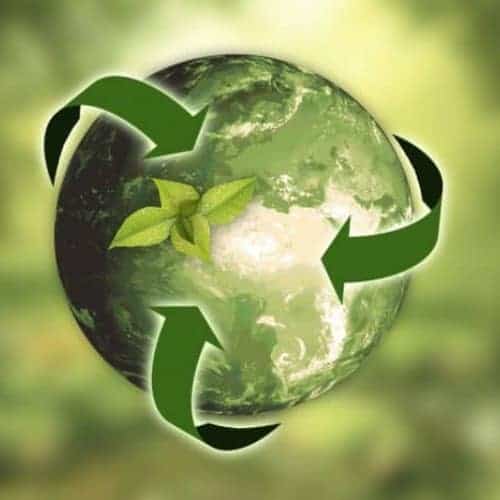What is the new Plastic Packaging Tax?
On the 1st April 2022, a new tax on plastic packaging will come into effect in the UK: the UK Plastic Packaging Tax (PPT). This affects large businesses that manufacture or import plastic packaging. Companies will need to pay the tax on all components on which it is due, from the day they become liable to register.
In summary:
– PPT applies to packaging containing under 30% recycled material from post consumer waste material
– PPT is levied at £200 per tonne
– There is an exemption to PPT for those manufacturing or importing under 10 tonnes of packaging per year
Why is PPT being introduced?
PPT will offer companies and manufacturers an economic incentive to use less plastic packaging. Although it may seem like the introduction of this law is to collect more tax revenue, its primary goal is to encourage manufacturers to use less plastic. From 1 April 2022, companies that have manufactured or imported 10 tonnes or more of finished plastic packaging components within the last 12 months, or will do so in the 30 days from 1 April 2022 must register for PPT. This includes both non-resident taxpayers who import finished plastic packaging into the UK on behalf of their own company, and those who manufacture finished plastic packaging in the UK.
Companies must register for PPT within 30 days of becoming liable to do so.
Which plastics does the Plastic Packaging Tax refer to?
For the purposes of the PPT, ‘plastic’ is defined as a polymer material to which additives or substances may have been added. When the amount of plastic in a packaging component is assessed, the additives are classed as part of the plastic. Plastics include bioplastics, including compostable, biodegradable and oxo-degradable plastics. The PPT does not refer to cellulose-based polymers that have not been chemically modified.
Which types of packaging does the Plastic Packaging Tax refer to?
Packaging designed to be suitable for use in the supply chain and single-use consumer packaging will be subject to this new tax. PPT will also be applied to packaging used for dangerous goods, as well as food-grade items. Note that some packaging which is exempt from the PPT will still need to be included in a businesses’ calculations regarding the 10-tonne limit – this limit ensures the tax will not disproportionately affect smaller businesses.
Please note that some items that will be excluded from this new tax. Packaging for licensed human medicines (note that the tax will apply to medical equipment packaging), as well as waste associated with production runs will be subject to the tax.
What about companies that import packaging for use in exports?
Plastics that are exported within 12 months of production may not be subject to the tax, but if you intend to import plastic packaging that you will use while exporting items you will have to first pay the PPT tax on the plastic. When you eventually export the items, you will be allowed to claim credit back from the government.
How will the new plastic packaging tax impact the shrinkwrap industry?
PPT will need to be paid by shrinkwrap businesses that handle more than 10 tonnes of plastic in a 12-month period. This new tax will apply to shrinkwrap packaging that has less than 30% recycled plastic from post-consumer waste material. In the short term, the prices of certain types of shrinkwrap films are likely to go up, given that demand will be very high. However working with a company like Kempner can help reduce the impact of PPT.
Pros of PPT
PPT forces companies to think about and act on sustainability issues. The government expect that more companies and manufacturers will choose to use a higher proportion of recycled plastic packaging to avoid the tax, rather than continuing with the same amount and paying PPT. This will also help to reduce the UK’s carbon footprint as the use of raw materials will be reduced, keeping our planet habitable for future generations.
Cons of PPT
Many businesses will find the introduction of PPT difficult to adapt to and struggle with the financial implications. Companies may just choose to pay the tax – this is bad for business and not environmentally conscious. Unfortunately, the definition of recycling plastics does not currently include ‘organic recycling’, so environmentally friendly plastics such as compostable, renewable, recyclable and responsible shrinkwrap items (e.g. sugarcane polyolefin) will still be taxed as part of the PPT. However, as this rule does not support the original plastic-reduction goal of the tax, it is currently under review by the government.
Another complication is that some large companies purchase plastic packaging from UK manufacturers, who will have already paid PPT on the items. The guidelines on the liability of parties across the supply chain may be revised later this year.
A challenge for some companies will be the safety of recycled plastics. Manufacturers have historically used plastics for food and medicinal packaging because they are proven to be safe. This packaging has also been shown to boost the shelf-life of food items, as well as other household products.
Are there environmentally friendly shrinkwrap options that could be better than those that are exempt from PPT?
At Kempner we strive to be as green as possible and pride ourselves on our environmental awareness. We have the largest inventory of shrinkwrap film in the country, and this includes several greener options including:
– Compostable films
– Shrinkwrap made from up to 51% sugarcane
– Ultra-thin films, which use less material (creating less waste than standard shrinkwrap if it is not recycled). We are proud members of OPRL and Recoup. We want to address sustainability issues in the shrinkwrap industry and help our customers achieve the most environmentally responsible films. If you would like more information about how to approach the upcoming changes, please don’t hesitate to contact us to discuss the most suitable packaging options for your requirements in light of PPT.


